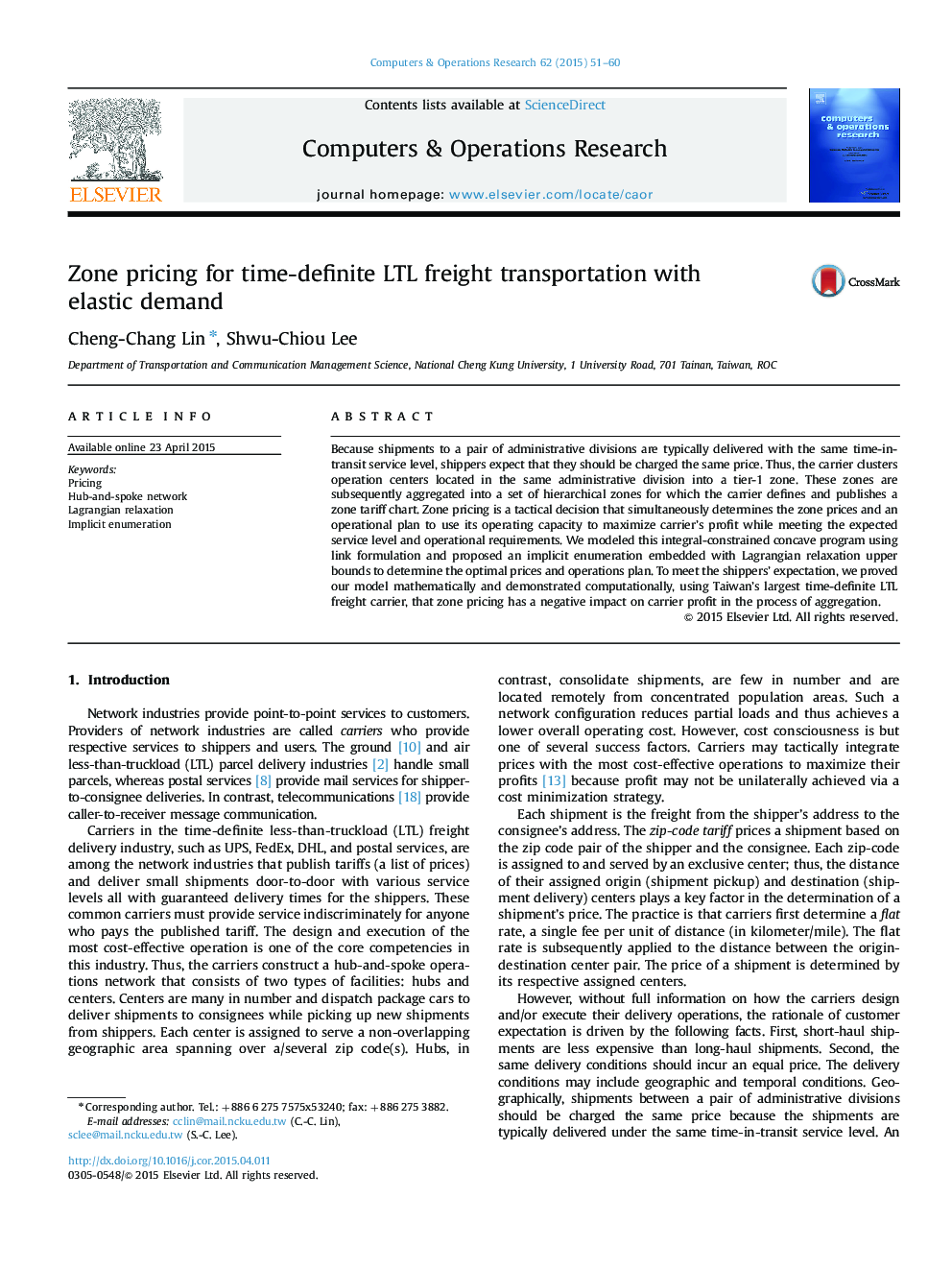| Article ID | Journal | Published Year | Pages | File Type |
|---|---|---|---|---|
| 475662 | Computers & Operations Research | 2015 | 10 Pages |
•There is a price to pay to meet the shippers׳ expectations that the same time-in-transit service level should be charged the same tariff.•The LTL carrier׳s current zone pricing is based on the straight-line distance, which does not reflect the industry’s operational characteristics, hub re-handling operations and indirect routes.•Clustering based on administrative division may create subsidies between OD pairs in a zone.•The aggregation of ODs with different operating costs and the setting of a single price at their average operating cost may create underpricing for certain situations but overpricing for others.•The higher the shortfall in operating capacity, the lower the profit for the price-elastic freight demand.
Because shipments to a pair of administrative divisions are typically delivered with the same time-in-transit service level, shippers expect that they should be charged the same price. Thus, the carrier clusters operation centers located in the same administrative division into a tier-1 zone. These zones are subsequently aggregated into a set of hierarchical zones for which the carrier defines and publishes a zone tariff chart. Zone pricing is a tactical decision that simultaneously determines the zone prices and an operational plan to use its operating capacity to maximize carrier’s profit while meeting the expected service level and operational requirements. We modeled this integral-constrained concave program using link formulation and proposed an implicit enumeration embedded with Lagrangian relaxation upper bounds to determine the optimal prices and operations plan. To meet the shippers’ expectation, we proved our model mathematically and demonstrated computationally, using Taiwan’s largest time-definite LTL freight carrier, that zone pricing has a negative impact on carrier profit in the process of aggregation.
